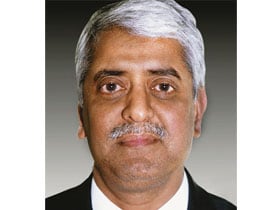
V.K. Viswanathan: Making Your Market
Where Bosch India's MD took his learning from
C.K. Prahalad’s book The Fortune at the Bottom of the Pyramid is a book that is high on my list of reads. I read this book four or five years ago, and I keep going back to it. It’s like Sholay; you don’t watch it just once.
The concept, however, was not new to me, as in the mid-80s my earlier company had started a segment in detergent and low-priced products. The concept that Nirma occupied a segment that a multinational could not compete in was thrown out of the window.
In Dharavi, there is a captive population of three to four million. That story is about identifying and targeting your segment, making an affordable and relevant product and creating a buying proposition that will match the aspirations of the customer. I took these learnings to our company Bosch.
Earlier, the belief was Bosch could not cater to low-cost markets. But today, we are the leading supplier to Nano and are low on cost, not technology.
Another example was that of the Surf and the Wheel detergent bar. It rekindled the thought that there is a segment not just at the top or a niche, but there is a huge opportunity if you deliver local market products through local engineering or manufacturing.
Road to Pakistan by B.R. Nanda is another favourite. It talks about how Mohammad Ali Jinnah joined the Congress as a unifier and then, over time, moved from the idea of a single country to the concept of partition.
There are three to four things that I adopted from this book: Build a strong consensus in a big organisation; the need to have a common approach theme; how to get people to move through strong communication; the courage to stick to your views and convince people.
V.K. Viswanathan is managing director, Bosch India
(As told to Nilofer D’Souza)
(This story appears in the 30 November, -0001 issue of Forbes India. To visit our Archives, click here.)





